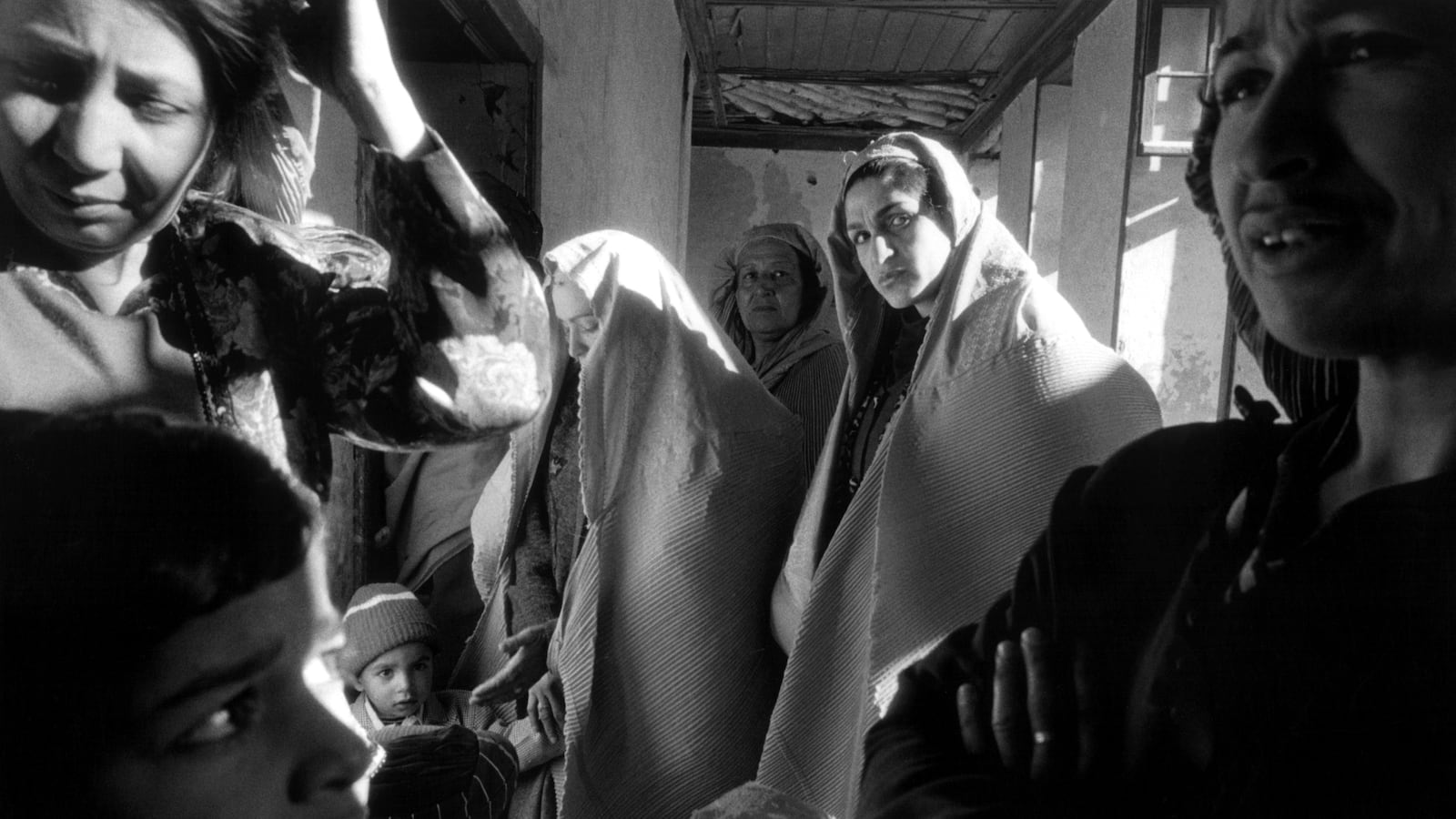When the war in Afghanistan began, the international community promised women freedom, rights and opportunity. As an American and international litigator who has worked in Afghanistan for over six years, I have witnessed huge changes to the lives of many women in Afghanistan since the purported fall of the Taliban in 2001.
There have been marked advances: An Oxfam report released last week entitled “Behind Closed Doors” says that 40 percent of the 8.3 million students in Afghanistan are girls, that many women are working, and that 27 percent of the Afghan Parliament are women.
But let’s not pat ourselves on the back just yet – that same report warns that these gains are fragile and at risk of being reversed. While women’s rights are often heralded as the great win of the war in Afghanistan, it’s easy to claim victory when there is no clear finish line.
Now, thirteen years on, there are two Afghanistans. One is a place where a minority of women in Kabul walk freely in the streets, try to stand up for their rights and reap the opportunities that have been created for them by foreign intervention. The other sees young girls raped and married to old men, women thrown in jail for “moral” crimes like escaping abusive relationships, and more domestic violence than ever before.
I’ve seen these two Afghanistans and met women from both—the lawyers, activists and parliamentarians who try to fight for change, but also the women who are trapped in their homes, quietly suffering unimaginable abuse without hope for justice or a better life. It is this other Afghanistan that shows us how much more work there is to do.
There have been a few rare cases of women who have suffered horrific abuse and received international attention and some measure of justice. One of my clients, Gulnaz, was raped by her cousin’s husband, became pregnant and was jailed for adultery when she ran away. We won an unprecedented pardon from then-President Karzai, and Gulnaz was freed. However, tradition overwhelmed the legal victory, and she sadly succumbed to the intense pressure to marry her attacker.
Gulnaz’s case did help decriminalize the act of women running away from their abusers. Despite this, women are still charged and penalized for escaping abusive relationships, and such crimes account for over half of the current women’s prison population in the country.
The case of twelve-year-old Sahar Gul, another client of mine, also shocked the world. She was tortured and imprisoned in the basement of her in-laws’ house for refusing to prostitute herself. After her uncle rescued her, she was brought to the hospital crumpled in a wheelbarrow, bruised, burned, bloodied and starved, with her fingernails ripped off. Sahar Gul also received a measure of justice: Her abusers were sentenced to five more years in prison by the Supreme Court.
But for each case like Gulnaz and Sahar’s, there are countless more women in Afghanistan who suffer in silence. It is because of them that we cannot tout women’s rights as a victory of the war in Afghanistan – we have not done enough. Women deserve to have meaningful roles in the shaping of the future of Afghanistan.
As the new Afghan government outlined in its new policies at this week’s London Conference on Afghanistan, there are positive signals for women’s rights in Afghan civil society, but fine words will be meaningless without effective action. During the July 2013 provincial elections, the Afghan Parliament quietly reduced its quota for female provincial council members from 25 to 20 percent. And even the women who are invited to participate in peace councils and other government meetings are often sidelined, allowed to participate only to make a quorum.
To ensure that all Afghan women see the gains of the last decade, we need to understand, support and enhance existing systems. Then we must address the threats Afghan women face, and ensure they have a meaningful role in talks about Afghanistan's future. A study cited in Oxfam’s report shows that when women are included in the peace-making process, the odds of finding a nonviolent resolution jumps by 24 percent.
The repression of Afghan women is not just a problem confined to the borders of Afghanistan—it is a global problem that we all should take responsibility for. The two Afghanistans show us that we all need to be better, smarter and more accountable to ensure that all Afghan women are equal, protected and have a voice. Without our unified global strength pushing forward to support the rights of Afghanistan’s women, the last thirteen years will be a hollow victory.
Kimberley Motley is an American and international litigator who practices in numerous jurisdictions including the United States and Afghanistan, where she works on human rights and other cases.






